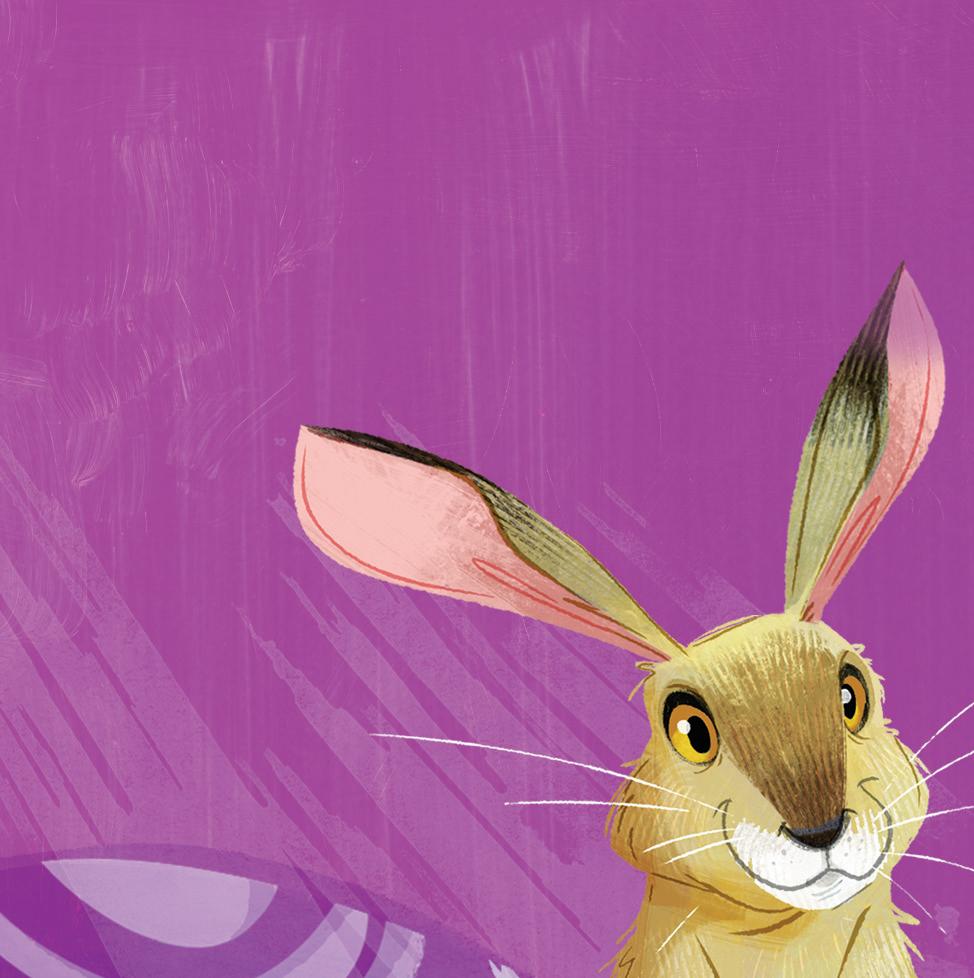
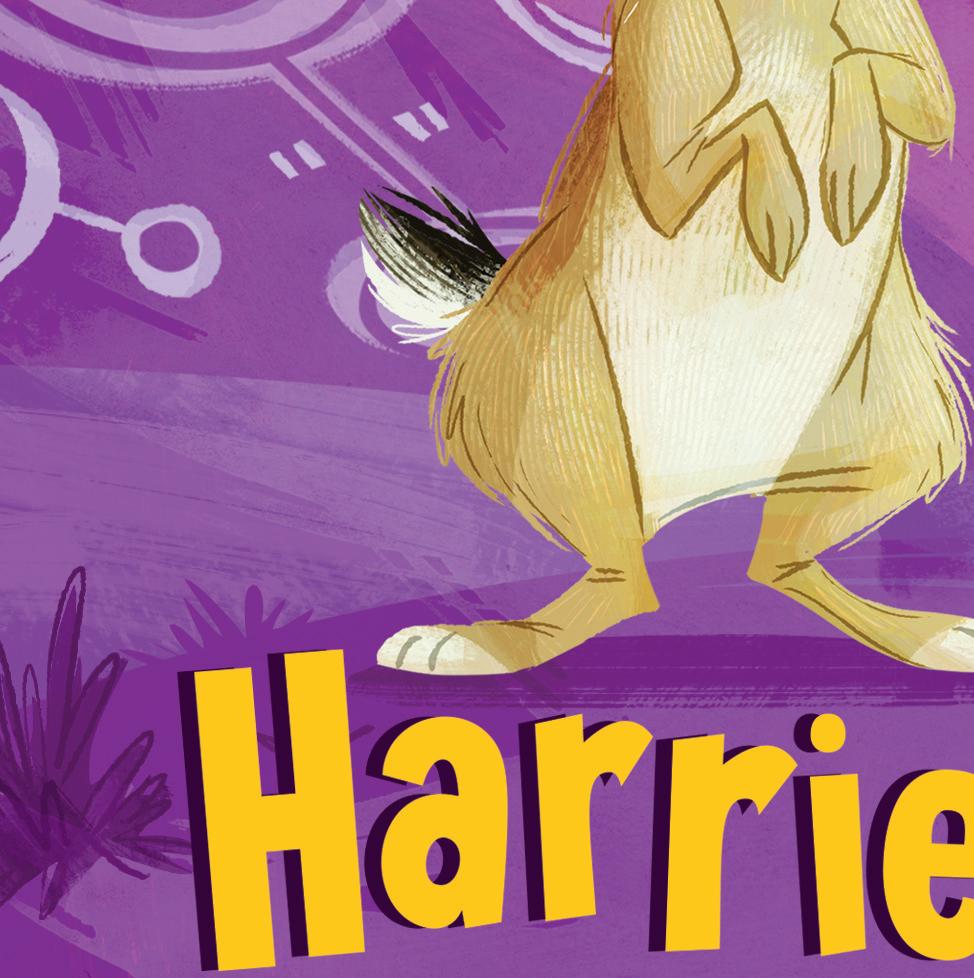
From the bestselling author of The Hodgeheg ANNIV E



From the bestselling author of The Hodgeheg ANNIV E

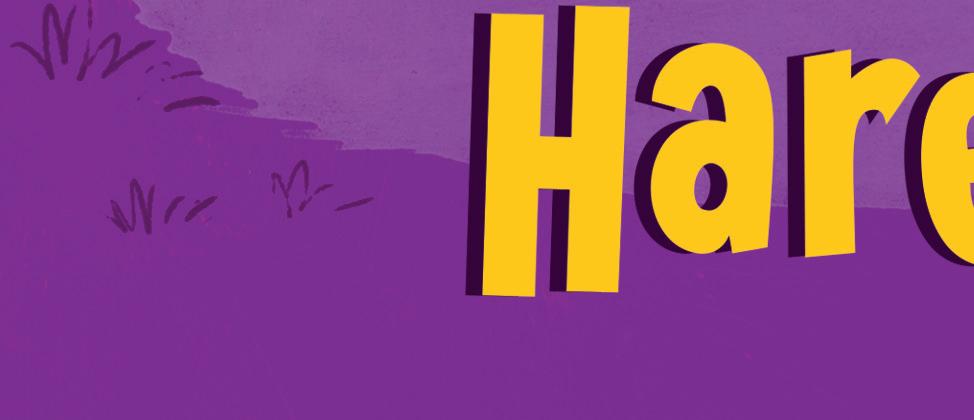
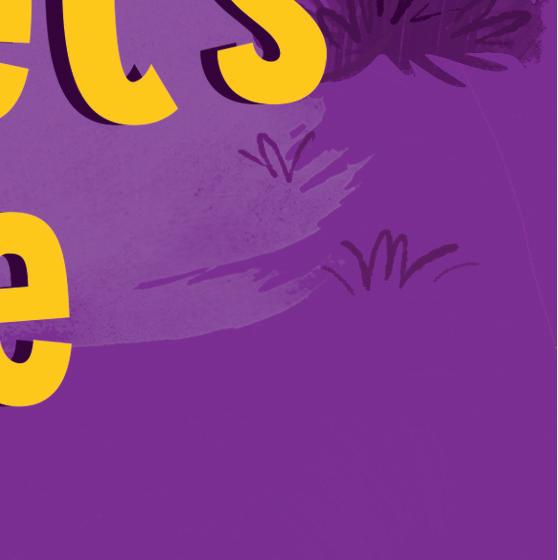
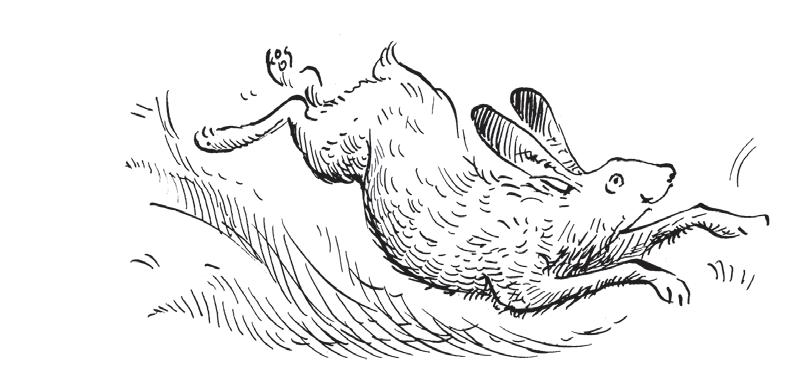

Dick King-Smith served in the Grenadier Guards during the Second World War, and afterwards spent twenty years as a farmer in Gloucestershire, the county of his birth. Many of his stories are inspired by his farming experiences. He wrote a great number of children’s books, including The Sheep-Pig (winner of the Guardian Award and filmed as Babe), Harry’s Mad, The Hodgeheg, Martin’s Mice, The Invisible Dog, The Queen’s Nose and The Crowstarver. At the British Book Awards in 1991 he was voted Children’s Author of the Year. In 2009 he was made OBE for services to children’s literature. Dick King-Smith died in 2011 at the age of eighty-eight.
Discover more about Dick King-Smith at: www.dickkingsmith.com
Some other books by Dick King-Smith
BLESSU
THE CROWSTARVER
DINOSAUR SCHOOL
DINOSAUR TROUBLE
DUMPLING
FAT LAWRENCE
THE FOX BUSTERS
GEORGE SPEAKS
THE GOLDEN GOOSE
HARRY’S MAD
THE HODGEHEG
THE INVISIBLE DOG
LADY DAISY
THE MAGIC CARPET SLIPPERS
MAGNUS POWERMOUSE
MARTIN’S MICE
THE MOUSE FAMILY ROBINSON
POPPET
THE QUEEN’S NOSE
THE SCHOOLMOUSE
THE SHEEP-PIG
SMASHER
THE SWOOSE
UNDER THE MISHMASH TREES
THE WATER HORSE
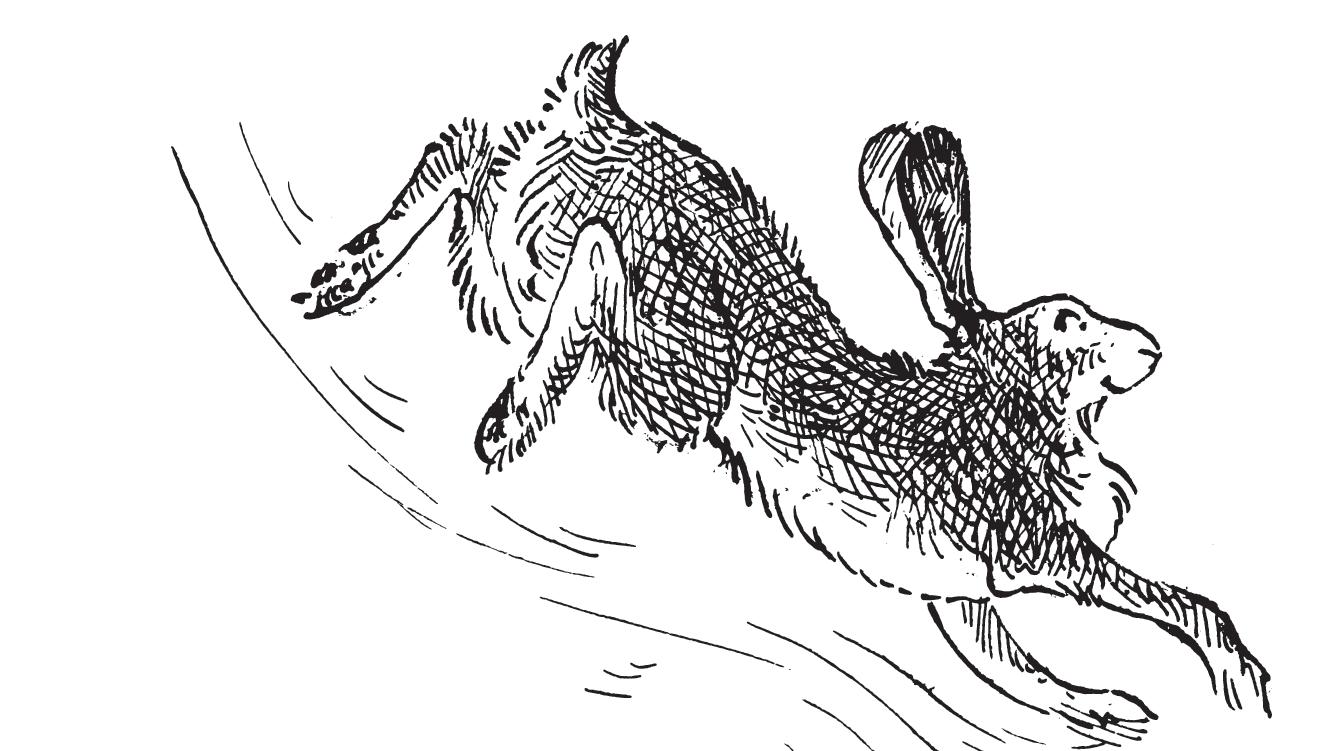
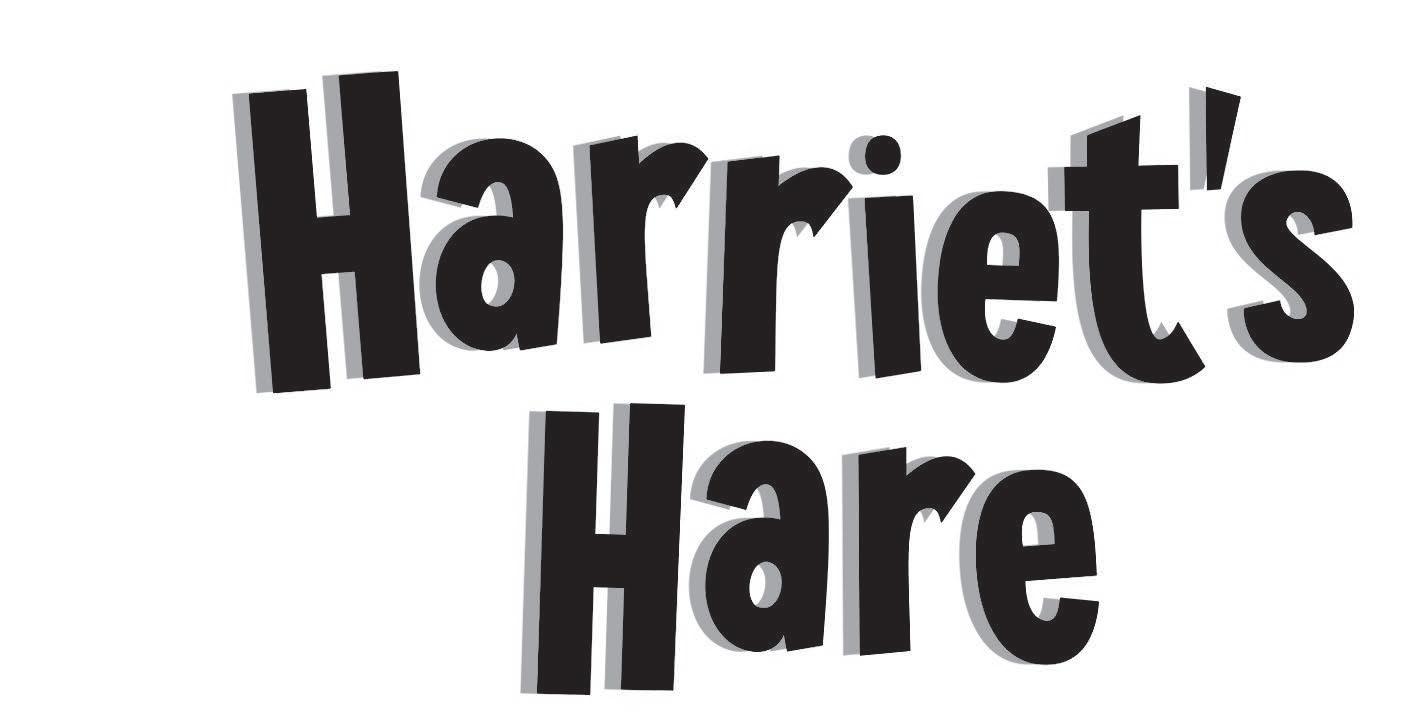


UK | USA | Canada | Ireland | Australia India | New Zealand | South Africa
Puffin Books is part of the Penguin Random House group of companies whose addresses can be found at global.penguinrandomhouse.com.
www.penguin.co.uk www.puffin.co.uk www.ladybird.co.uk
First published in Great Britain by Doubleday, an imprint of Random House Children’s Books Doubleday edition published 1994 Corgi Yearling edition published 1996, 2010 This edition published 2024 001
Text copyright © Fox Busters Ltd, 1994 Illustrations copyright © Valerie Littlewood, 1994
The moral right of the author and illustrator has been asserted
Set in 15/21 pt Palatino LT Pro Typeset by Jouve (UK), Milton Keynes Printed and bound in Great Britain by Clays Ltd, Elcograf S.p.A.
The authorized representative in the EEA is Penguin Random House Ireland, Morrison Chambers, 32 Nassau Street, Dublin D02 YH68
A CIP catalogue record for this book is available from the British Library
ISBN: 978–0–241–69463–3
All correspondence to:
Puffin Books, Penguin Random House Children’s One Embassy Gardens, 8 Viaduct Gardens, London SW11 7BW
Penguin Random Hous e is committed to a sustainable future for our business, our readers and our planet. is book is made from Forest Stewardship Council® certified paper.
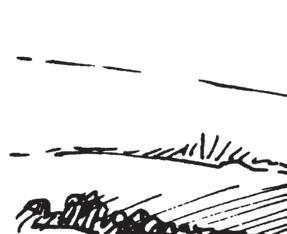
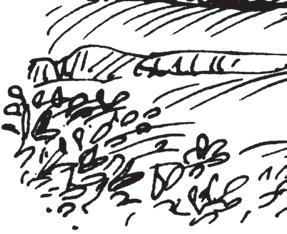
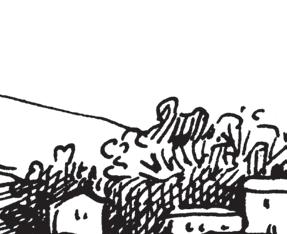
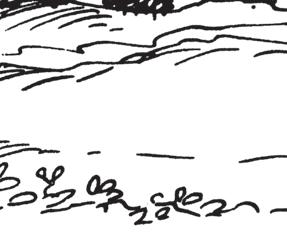
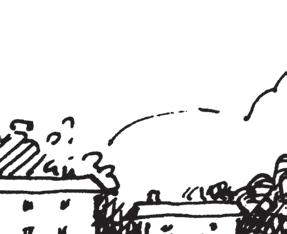
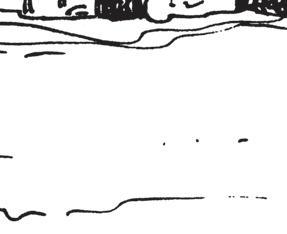
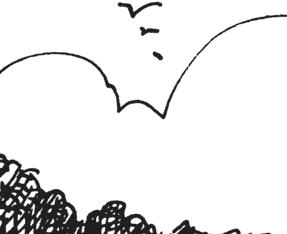
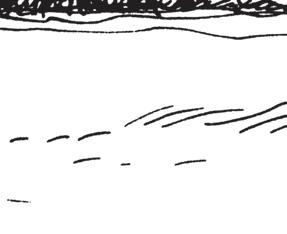

Harriet sat up, suddenly wide awake. Whatever was that noise?
It was a rushing, tearing, swishing noise – just the sound a rocket makes on Guy Fawkes Night, yet much much louder. But this was the start of a midsummer day and – she looked at her watch – early too, not five o’clock yet.
Dick King-Smith
She leaped out of bed and ran to the window.
The farmhouse and its buildings were tucked into the side of a gentle hill, and in the little flat valley below were two large fields, the nearer one green, the further one gold.
In the first, her father’s cows would normally have been waiting around the gateway for him to come and fetch them in for morning milking. But now the whole herd was galloping and buck-jumping around the pasture as though something had scared the wits out of them.
The second field was of wheat, almost ready for harvesting, that looked from the house above like a square golden blanket, glowing in the
Harriet’s Hare morning sunlight. But there seemed to be a hole in the blanket. In one corner of the wheatfield, Harriet could see, there was a perfect circle of flattened corn.
It took Harriet a quarter of an hour to dress and slip out of the house and run down the dewy hillside. By now the cows had quietened, and she ran through them to the wheatfield beyond, climbed over its gate and pushed through the standing corn to step into that perfect circle.
What had made it? What had made the noise that had woken her and terrified the cows? Whatever had happened in the field called Ten Acre on Longhanger Farm at the start of this July day?
Dick King-Smith
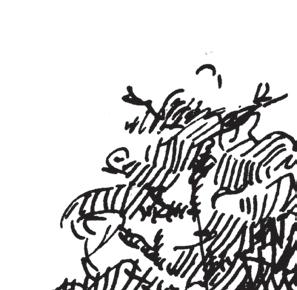
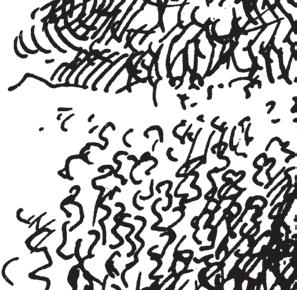
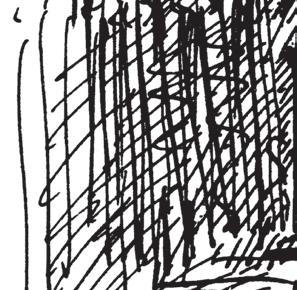
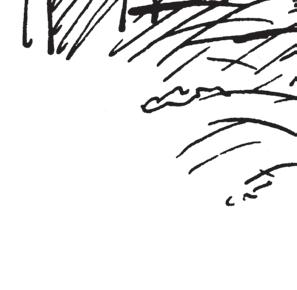
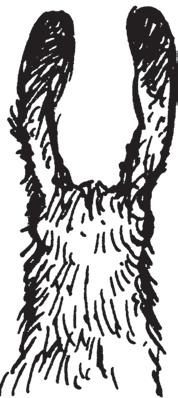
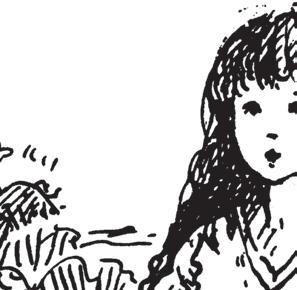
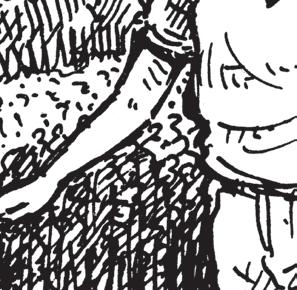
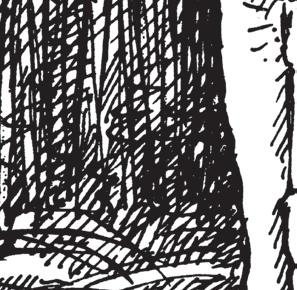
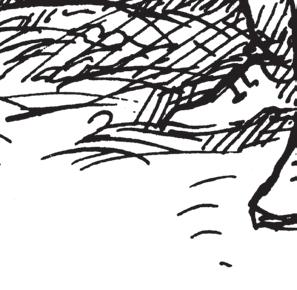
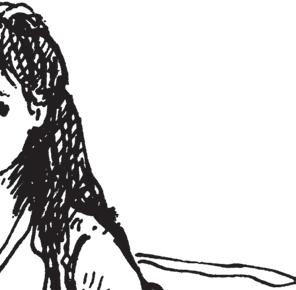
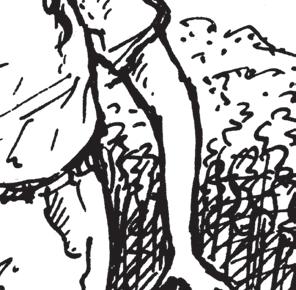
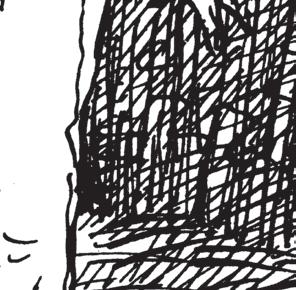
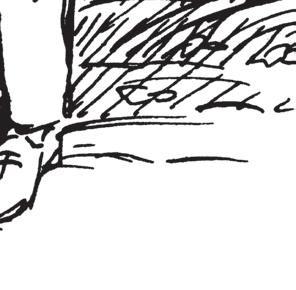
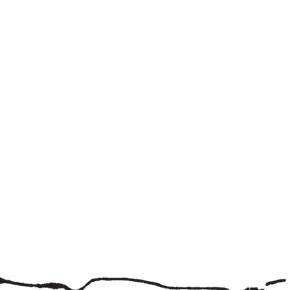
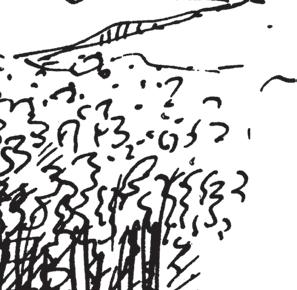
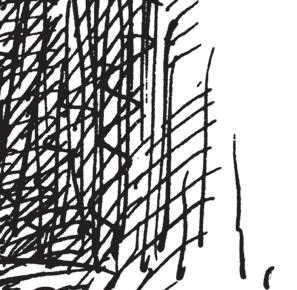
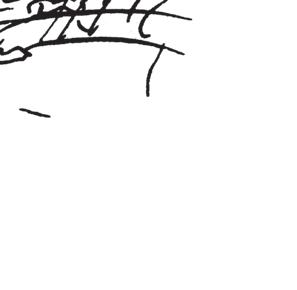
Harriet walked into the middle of the circle. It was big, perhaps twenty metres across, and all the corn in it was squashed down to the
Harriet’s Hare ground, flat, as though an enormously heavy weight had rested there.
As she stood there now, in the stillness, with no sound but distant birdsong, a hare suddenly came out into the corn circle and stopped and sat up. It turned its head a little sideways, the better to see her.
Harriet stood stock-still. Aren’t you handsome, she thought, with your tawny coat and your black-tipped ears and your long hind legs. Don’t run away. I won’t hurt you.
For a moment the hare stayed where it was, watching her. Then, to her great surprise, it lolloped right up to her.
Surprise is one thing, but total amazement is quite another, and that
Dick King-Smith was what Harriet next felt when all of a sudden the hare said, loudly and clearly, ‘Good morning.’
Harriet pinched herself, hard. Wake up, she thought. This whole thing is a dream, hares don’t talk, and then she said it aloud: ‘Hares don’t talk.’
‘I’m sure they don’t as a general rule,’ said the hare, ‘but I’m a rather unusual hare.’
‘You certainly are,’ said Harriet. ‘Are you anything to do with this corn circle?’
For a moment the hare didn’t answer but fell to grooming its face. Then it said, ‘What’s your name?’ ‘Harriet.’
‘Can you keep a secret, Harriet?’ ‘Yes.’
Harriet’s Hare
‘I,’ said the hare, ‘am a visitor from outer space.’
‘You mean . . . this circle was made by your spacecraft?’
‘Yes.’
‘So you come from another planet?’
‘Yes. I come from Pars.’
‘Pars?’ said Harriet. ‘Is that near Mars?’
‘Oh no,’ said the hare. ‘Much much further away.’
‘But,’ said Harriet, ‘I thought that aliens were . . . well, little green men with four arms and eyes on stalks.’
‘Not far wrong,’ said the hare. ‘But you see, Harriet, we Partians have the ability to change. Imagine how strange your modern world here would seem to a caveman. Whatever would he
Dick
King-Smith
make of microsurgery and satellite television and supersonic flight? You have to understand that on Pars we are as far ahead of you people on Earth as you are now ahead of the cavemen. One of the things we can do, for example, is to speak all earthly languages. But perhaps to you our most astonishing skill is that we have perfected the ability to change our shapes. When my colleagues left me here in this cornfield, I could, for instance, have decided to become a tiger (though that might have caused a bit of a stir in deepest Wiltshire) or a dog or a sheep or anything else you like. But I chose to change myself into a hare.’
‘Why?’ asked Harriet.
Harriet’s Hare
‘Because in this world the hare has always been thought to be a beast of magic. People said that hares were witches and could melt away and reappear, to dance and play in the light of the moon. (Incidentally some still say that if you look at the full moon, it is not a man’s face that you see there, but the shape of a hare.) And others believed that hares could change their sex at will.’
‘Oh,’ said Harriet. ‘Which are you at the moment?’
‘I,’ said the hare, ‘am a buck and fully intend to remain so, for the length of my stay on Earth.’
Harriet felt suddenly dreadfully disappointed. Here she was, in her father’s wheatfield, deep in conversation
Dick King-Smith with a magic hare, but perhaps he would only be around for a very short time.
‘How long are you staying?’ she said.
‘It depends,’ said the hare, ‘on how much I like it here. This is actually my first Earth holiday.’
‘You’ve come here for a holiday?’ asked Harriet.
‘Oh yes,’ said the hare. ‘Everyone on Pars takes a holiday abroad every so often. Interplanetary travel is so quick and easy nowadays, you know – to anywhere in the solar system that you fancy. I’ve been to a number of heavenly bodies but never to Earth. I just fancied going somewhere quite different this year, somewhere rather primitive, where the technology was